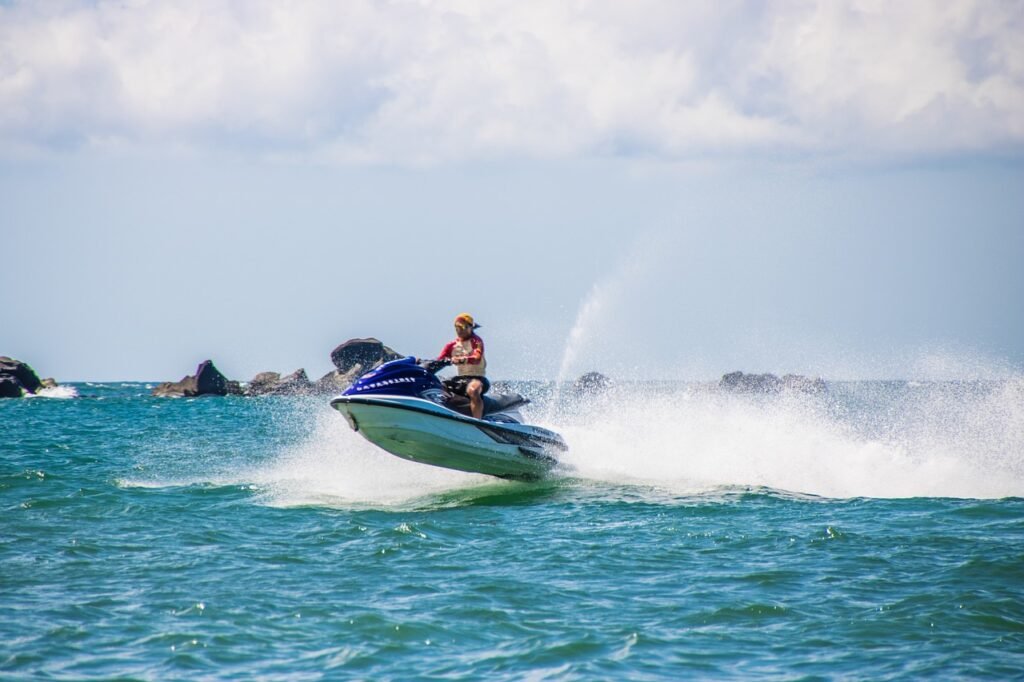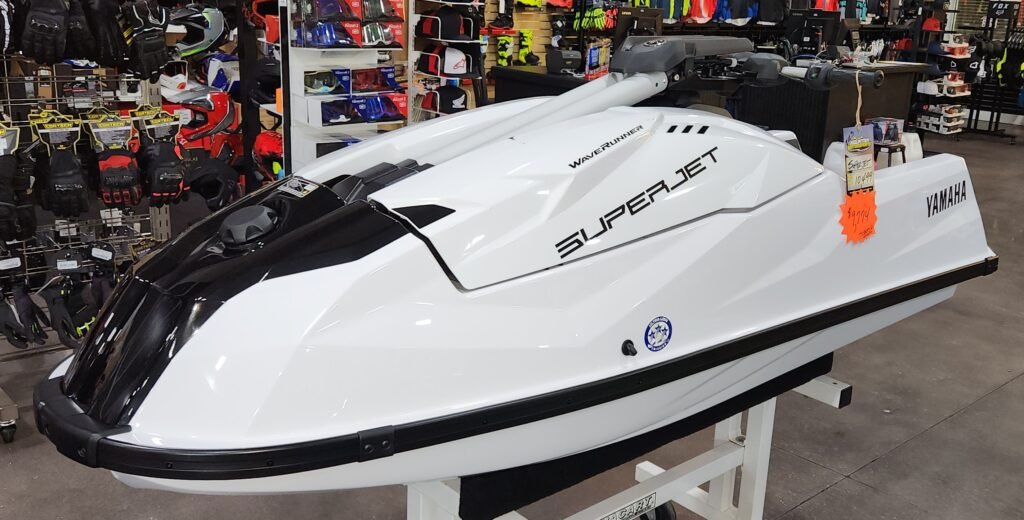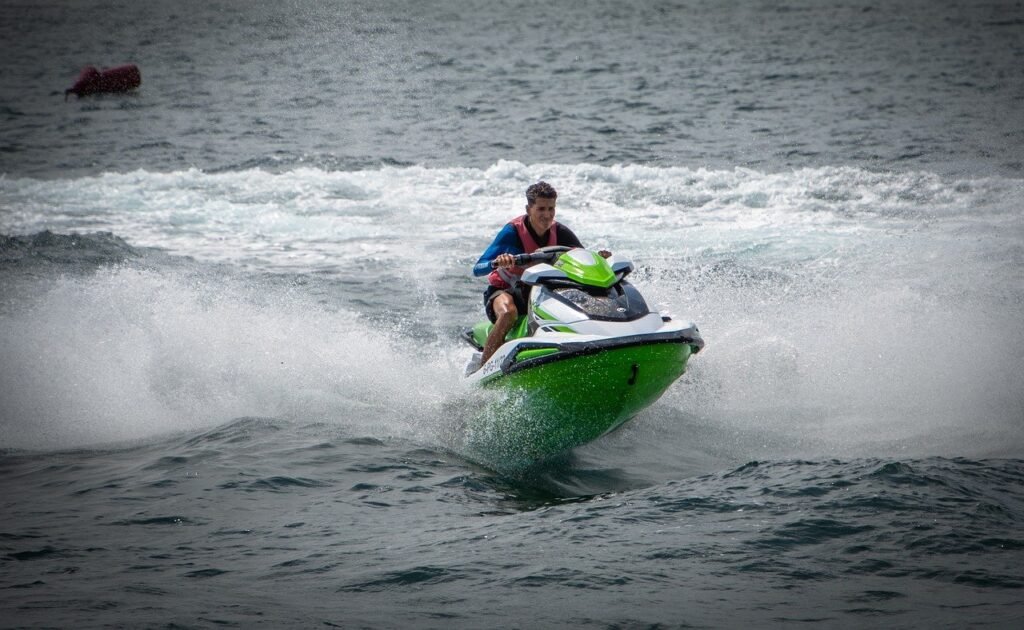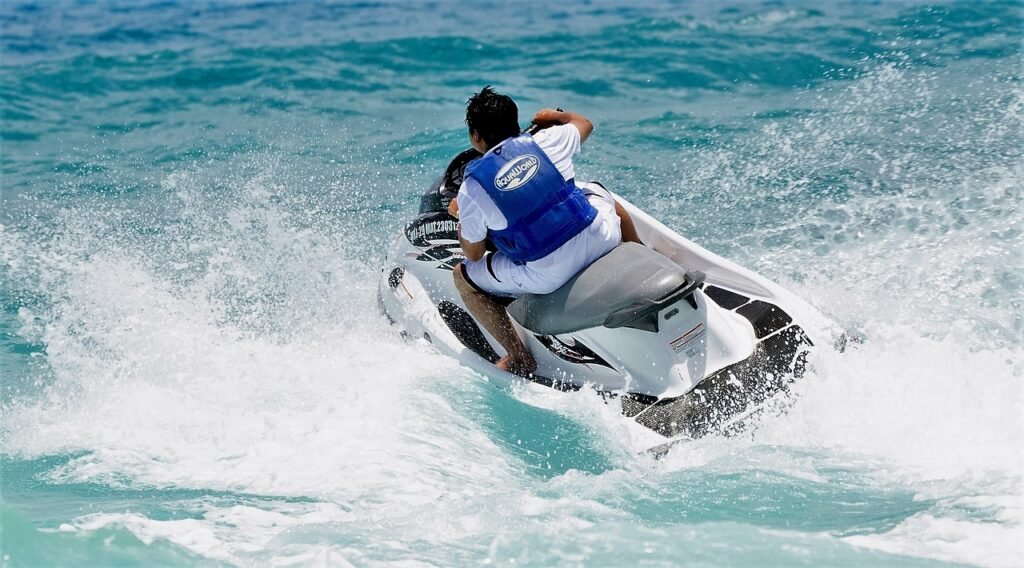This post may contain affiliate links, which means that I may make a small commission off items you purchase at no additional cost to you. Please see my terms of use page for details.
When it comes to jetskis, one major factor to consider is their resale value and longevity. In this article, we will delve into the question of how well a Yamaha jetski holds its value compared to other brands. Yamaha, known for its reliable and high-quality watercraft, is often a popular choice among jetski enthusiasts. By exploring customer opinions, industry trends, and comparing a Yamaha jetski with other manufacturers like Sea-Doo, Kawasaki, Honda, and Polaris, we aim to provide a comprehensive understanding of the resale value and longevity of a Yamaha jetski. So, if you’re looking to purchase a jetski and want to make an informed decision, keep reading to discover valuable insights.
Resale Value and Longevity: How well does a Yamaha jetski hold its value compared to other brands?
When it comes to purchasing a jetski, one of the key considerations for buyers is the resale value. After all, owning a watercraft is not just about the thrill of riding the waves; it is also an investment. Yamaha, a renowned brand in the world of personal watercraft, has built a strong reputation for its reliability and durability. In this article, we will explore how well a Yamaha jetski holds its value when compared to other brands, examining various factors and customer experiences.
Factors Affecting Resale Value
Several factors can affect the resale value of a watercraft, and it’s essential to consider them when making a purchasing decision. Some of these factors include the age of the jet ski, the model, its condition, maintenance history, and market demand. While a Yamaha jetski is generally known for holding its value well, these factors should still be taken into account.
Comparison with Other Brands
When it comes to comparing the resale value of a Yamaha jetski with other brands, it’s crucial to take a holistic view. While Yamaha has a strong reputation in this area, it’s worth considering how other popular brands fare, such as Sea-Doo (BRP), Kawasaki, Honda, and Polaris (including the former Tigershark brand).
Yamaha’s Reputation for Resale Value
Yamaha has been widely recognized for its commitment to quality and longevity, factors that contribute to its positive reputation for resale value. Many customers have reported minimal depreciation in the value of their Yamaha jetski, even after several years of use. This reputation is primarily due to the brand’s engineering excellence, which includes reliable engines, durable hulls, and advanced technology.
Customer Opinions and Experiences
Customer opinions and experiences play a significant role in evaluating the resale value of a Yamaha jetski. Many Yamaha owners have expressed satisfaction with their watercraft’s resale value, stating that they were able to fetch good prices when upgrading or selling their jetskis. The consistent positive feedback from customers further strengthens Yamaha’s reputation for holding its value compared to other brands.

Tips for Maintaining Resale Value
To maximize the resale value of any watercraft, including Yamaha jetskis, certain maintenance practices are recommended. Regular maintenance, such as proper cleaning and detailing, performing necessary repairs, and keeping up with routine maintenance schedules, can go a long way in preserving the value of the jetski. Additionally, storing the watercraft in a covered area and using protective covers when not in use can help prevent damage and maintain its overall condition.
Industry Trends and Analysis
Analyzing industry trends can provide valuable insights into the resale value of a Yamaha jetski and other brands. While there are no definitive predictions, experts suggest that Yamaha’s strong brand reputation and consistent innovation contribute to maintaining a competitive advantage. Industry trends also indicate that there is a steady demand for a Yamaha jetski in the market, which further supports their resale value.
Resale Value of Other Brands
While Yamaha is known for its solid resale value, it’s worth considering how other popular brands stack up in this aspect. Let’s explore how a Yamaha jetski compares to Sea-Doo (BRP), Kawasaki, Honda, and Polaris (Tigershark) when it comes to holding their value over time.
Yamaha Jetski vs. Sea-Doo (BRP)
Both Yamaha and Sea-Doo (BRP) have strong reputations in the personal watercraft industry. Each brand has its loyal customer base, and the resale value for both brands remains relatively high. Determining which brand holds its value better can vary depending on the specific model and market conditions. However, in general, Yamaha’s reputation for reliability and durability can give it a slight edge when it comes to resale value.

Yamaha Jetski vs. Kawasaki
Kawasaki is another well-known brand in the world of personal watercraft. While Kawasaki jetskis are highly regarded for their performance, Yamaha tends to have an advantage when it comes to resale value. This is primarily due to Yamaha’s reputation for longevity and the overall demand for their products.
Yamaha Jetski vs. Honda
Honda is widely recognized for its engineering excellence and reliability, but it has a limited presence in the personal watercraft industry. As a result, Yamaha typically outperforms Honda concerning resale value. However, it’s essential to note that Honda no longer builds watercraft, and individual remaining models may have their strengths.
Yamaha Jetski vs. Polaris (Tigershark)
Polaris, including the Tigershark brand, has historically faced challenges in the personal watercraft market and eventually ceased production. While Polaris watercraft had their loyal following, Yamaha has consistently outperformed Polaris in terms of resale value. This can be attributed to Yamaha’s strong brand reputation, reliability, and longevity compared to Polaris watercraft.
Reasons for Honda, Polaris, and Tigershark Ending Production
The decision for Honda, Polaris, and Tigershark to end production of their personal watercraft reflects various factors. In the case of Honda, the limited market presence and competition from well-established brands played a role. Polaris and Tigershark faced their own challenges, including financial considerations, market demand, and the need to focus on other product lines within their company.
Customer Opinions on Reliability of Different Brands
Customer opinions on the reliability of different brands can vary based on individual experiences. It is always important to note that opinions may differ, and it’s essential to consider a wide range of feedback. That said, Yamaha consistently receives positive reviews from customers regarding its reliability and longevity. This aligns with its reputation for retaining resale value.
Factors Contributing to Brand Reliability
Several factors contribute to the reliability of a brand. In the case of Yamaha, its commitment to quality craftsmanship, innovative technology, rigorous testing processes, and continual improvement all play a significant role. Yamaha’s extensive experience in the industry and dedication to customer satisfaction also contribute to its reliable reputation.
Expert Reviews on Brand Reliability
Expert reviews can provide valuable insights into the reliability of brands such as Yamaha. These reviews often evaluate various aspects of the jetskis, such as performance, durability, and maintenance requirements. They also take into account customer feedback and industry data to provide an objective analysis. Yamaha consistently receives positive expert reviews, further affirming its reputation for reliability.

Comparing Brand Longevity
Brand longevity is an important consideration when assessing the resale value of watercraft. Yamaha, Sea-Doo (BRP), Kawasaki, Honda, and Polaris (Tigershark) have all been in the market for a considerable period. However, Yamaha’s long-standing presence and track record of producing reliable watercraft strengthen its position in terms of brand longevity.
Innovation and Technological Advancements
Innovation and technological advancements also contribute to a brand’s ability to hold its value. Yamaha has consistently showcased its commitment to innovation by introducing groundbreaking technologies and features in its watercraft. These advancements not only enhance the riding experience but also demonstrate Yamaha’s dedication to staying ahead of the competition, further solidifying its position in terms of resale value.
Customer Satisfaction and Loyalty
Customer satisfaction and loyalty are crucial factors that can influence the resale value of a brand. Yamaha excels in this area, with a dedicated customer base that appreciates the brand’s quality, reliability, and overall ownership experience. The high level of customer satisfaction and loyalty contributes to Yamaha’s strong resale value compared to other brands.
Influence of Brand Reputation on Resale Value
Brand reputation plays a significant role in determining the resale value of watercraft. Yamaha’s solid reputation for reliability, durability, and overall quality has a positive impact on its resale value. Customers looking to sell or upgrade their Yamaha jetski can expect to receive competitive prices due to the brand’s strong reputation, which instills confidence in potential buyers.
In conclusion, Yamaha jet skis have earned a well-deserved reputation for their resale value when compared to other brands. Through their commitment to quality, reliability, longevity, and customer satisfaction, Yamaha continues to hold its value well in the market. While other brands may have their strengths, Yamaha’s track record, coupled with its innovative advancements, solidify its position as a top choice for consumers seeking a reliable and valuable investment in a jet ski.
Related Articles:
Experience the Ultimate Rush: 2022 Yamaha Jet Blaster Review
Why Are Yamaha Wave Runners Popular?

